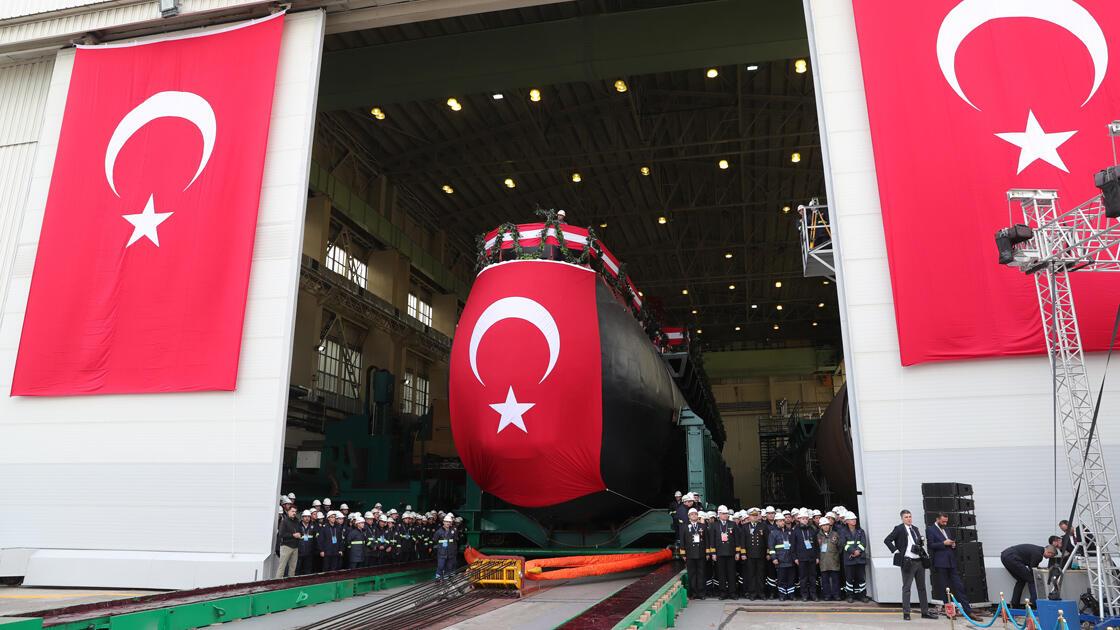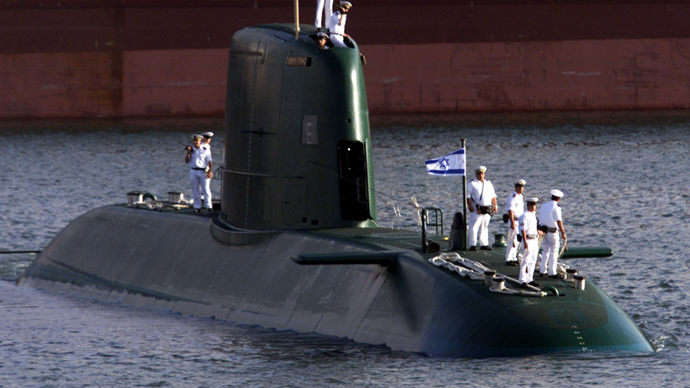Earlier this year the first German-designed submarine purchased by Turkey left its dock and will join the Turkish navy next year. It is one of six Reis-class submarines to be constructed at the Golchuk Naval Shipyard in Izmir in a deal that will net German death merchants an estimated $4 billion.
The acquisition of the submarines occurs as Turkey is embroiled in territorial conflicts with Greece and Cyprus over oil and natural gas drilling rights in the eastern Mediterranean Sea. (Cyprus, Greece and Israel have formed an Energy Triangle to jointly exploit natural gas fields lying between Cyprus and Israel as well.)
It also occurs as Egypt has inaugurated a naval base near the Libyan border in what is being interpreted as a message to Turkey, which deployed its military to Libya to defeat the faction Egypt supported in the recently-concluded civil war. Turkey continues to maintain a military presence in Egypt’s western neighbor. It also threatened a French military vessel off the coast of Libya last year and is at war with the government of Syria, so Ankara has no friends in the Mediterranean. Except NATO.
Notwithstanding all of the above, it is a valued NATO member, indeed the military bloc’s second-most powerful member, routinely hailed as the protector of NATO’s southeastern border. (That is, its border with Iran, Iraq and Syria.)
And it is still treated as a cherished NATO ally sufficiently to be provided with six German state-of-the art submarines despite lobbying from fellow bloc members France and Greece against the transaction.
The German submarines are equipped with air-independent propulsion which permits them to remain submerged for three weeks with minimum noise. They are optimal for shallow waters like those of the eastern Mediterranean and can be equipped with medium-range anti-ship missiles. Turkey has also recently launched TCG Anadolu, its first light aircraft carrier.

As the Economist recently stated, for decades Germany has been at the forefront of building advanced submarines, providing more than 120 to 17 countries since the 1960s. (By 2009 Germany had become the world’s third-largest weapons exporter, a ranking it subsequently lost to France, and is now the fourth-largest.)
In recent years it has not so much sold as given five Dolphin-class submarines to Israel, with at least three more in the works. Israel has been a NATO partner since 1994 and in 2016 opened a liaison office at NATO headquarters (along with Bahrain, Kuwait, Qatar and the United Arab Emirates).
The Israel submarines, which in recent years have been prowling the Mediterranean Sea, Red Sea and Persian Gulf, are capable of launching long-range nuclear-capable submarine-launched cruise missiles (SLCMs) such as the Israeli Popeye missile.
It is not inconceivable that a German-designed Turkish submarine and a German-constructed Israeli submarine would clash at some point in the eastern Mediterranean. All in a day’s work for NATO weapon interoperability purposes. “Maintaining peace,” or whatever pat justification the bloc uses for global military expansion and bombing defenseless nations on several continents, is a highly lucrative trade. $4 billion a crack at times.



